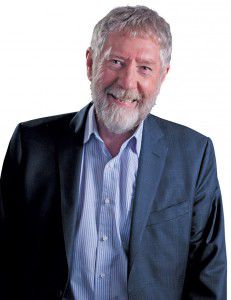TREASURER Scott Morrison and other conservatives would love us to believe that they are much better Budget managers than the Labor alternative. The trouble is that the evidence does not bear out such claims.

The current Budget relies on the sort of windfall gains that kept the Howard government afloat while then-Treasurer Peter Costello managed considerable tax breaks and extensively increased Federal expenditure. The Labor government of Kevin Rudd handled the Global Financial Crisis by deploying government spending to successfully maintain a vibrant Australian economy.
A windfall increase in commodity prices has come at a time to provide the sort of picture that Morrison needs to present a “steady-hand-on-the-tiller” Budget.
By April’s end, the price of oil was poised for its biggest monthly gain in seven years and in recent weeks, the price of iron ore has doubled, from the $US50 a tonne prediction of Macquarie Bank to an actual price of almost $US70.
The Treasurer can rely on such figures to give a strong forecast for the coming years. After all, in political terms, the forecast has only to last until early July to get the government re-elected.
The alternative is set out dramatically by blogger Peter Switzer who says: “Poor Chinese data, falling commodity prices, a slumping dollar, a capitulating stock market and a run of uninspiring economic readings on our economy” is likely to ensure a Bill Shorten government.
The Liberals continue to perpetuate the myth that cutting taxation builds the economy and the trickle-down effect means that everyone’s a winner. Nonsense!
Ian McAuley, lecturer in public sector finance at the University of Canberra, writing with Miriam Lyons in “Governomics: Can we afford small government?” suggests that “what counts in economic performance is not the size of government but, rather, its quality – the capacity of public agencies to operate with efficiency and responsiveness where markets fail”.
Writing in “The Conversation”, McAuley pointed out “in comparison with other prosperous developed countries, Australia is a country of low taxes and small government”.
Of the 18 most prosperous OECD countries only the US and Switzerland are lower taxing than Australia.
In Canberra, where Joe Hockey’s slashing of the Federal bureaucracy cut deeply into the community wellbeing, the impact of “small government” thinking ought to be challenged.
John Daley, of the Grattan Institute, says: “Smaller government is unlikely to solve Australia’s budgetary problems. Across the OECD, there is no obvious relationship between size of government and size of government deficits”.
The Greens should not be ignored. Federal leader Richard Di Natale has recently taken a page from President Obama’s book in calling for the “Buffett Rule”. If adopted, all taxpayers earning a gross income of more than $300,000 will be required to pay a minimum of 35 per cent of their earnings in tax.
In 2015, according to the Senator, “56 people who earned a collective $129 million paid no tax, not a single cent, but spent $47 million on tax advice”, adding that, “meanwhile, Australians are being told to tighten their belts while the government rips $80 billion from our schools and hospitals”.
The response from the government on the $80 billion is that “it was never in the forward estimates” and should not be counted. What puts the lie to their rhetoric is the announcement in February of $29.9 billion in additional spending over the next 10 years, bringing the total Defence budget to 2 per cent of GDP by 2023. They can’t have the pudding and eat it, too!
A Budget within the context of an election should be the hallmark of a government that’s in control, is making things happen and is building a better community. It is now up to the electorate to decide, within this context, whether or not this Budget really is a success.
Michael Moore was an independent member of the ACT Legislative Assembly (1989 to 2001) and was minister for health
Who can be trusted?
In a world of spin and confusion, there’s never been a more important time to support independent journalism in Canberra.
If you trust our work online and want to enforce the power of independent voices, I invite you to make a small contribution.
Every dollar of support is invested back into our journalism to help keep citynews.com.au strong and free.
Thank you,
Ian Meikle, editor





Leave a Reply